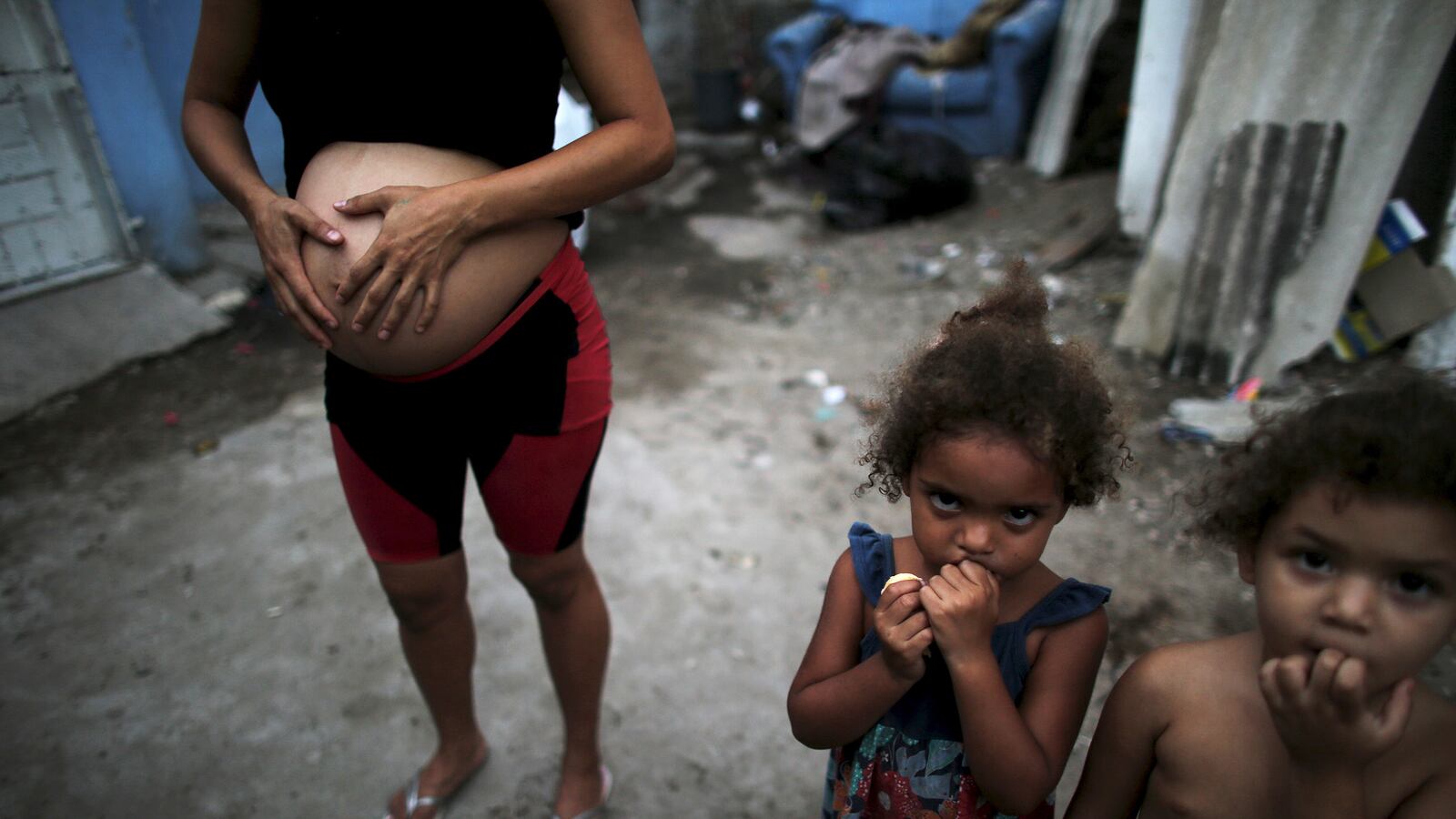Women on Web sends abortion pills to women who cannot otherwise access them. But after Brazilian officials apparently confiscated almost all of their illegal packages, the Canadian group is suspending operations in the country.
For women living in the heart of the Zika virus outbreak who are concerned about the risks of microcephaly, a birth defect that impacts brain function and reduces head size, this government crackdown is devastating.
“Here in my town there’s nothing else to do, it’s either your service or nothing,” one woman wrote to Women on Web in an email shared by the Los Angeles Times.
Women on Web told the LA Times in a statement that the Brazilian Health Surveillance Agency has confiscated 95 percent of their packages of mifepristone and misoprostol, medications that are commonly taken in sequence a day or more apart in order to end a pregnancy within its first nine weeks.
In the United States, the mifepristone-misoprostol regimen, commonly known as a medical abortion, is widely available but still regulated on a state level based on Food and Drug Administration (FDA) requirements. On Tuesday, however, the FDA updated its label for mifepristone, specifying that it can now be used within 70 days of the start of a woman’s last period and that the second pill in the sequence can be taken “at a location appropriate for the patient,” rather than in a doctor’s office as some states require.
The FDA’s new label affirms what abortion providers in the American Congress of Obstetricians and Gynecologists (ACOG) have noted for years: medical abortion is safe, effective and does not require an in-person follow up visit.
In a country like Brazil, medical abortion access could provide immediate relief for pregnant women concerned about the effects of Zika. But while medical abortion becomes easier to access in the United States, Brazil’s tight abortion regulations are not budging, even in the face of the ongoing crisis.
Abortion itself is only legal in Brazil in cases of rape or life endangerment, with harsh prison sentences for women and providers alike. Despite their illegality, anywhere from 1 million to 4 million abortions are performed in the country annually.
As of 2012, Brazil does allow abortions for a fetal diagnosis of anencephaly but in cases of microcephaly, a similar but often less severe congenital condition, abortion is still illegal. The World Health Organization (WHO) estimates that 2,500 babies will be born with microcephaly in Brazil if current rates of infection continue.
Even though abortion is already illegal, Brazilian congressman Anderson Ferreira has been trying to increase legal penalties for women who seek abortion specifically for microcephaly. Ferreira’s bill, as PRI reports, would dole out 4½-year prison sentences for women seeking abortions in these cases and even longer sentences for the physicians who perform them.
Brazil’s reluctance to budge on abortion will place further pressure on the low-income women who live in the regions that have been disproportionately affected by the mosquito-transmitted Zika virus. The confiscation of abortion pills only makes matters worse along economic lines. As Vocativ reported, wealthier Brazilian women can afford to leave the country or go to an illegal clinic for an abortion but poor women rely on more desperate measures like buying black-market abortion pills.
Women on Web was hoping to level this economic disparity by distributing mifepristone and misoprostol to Brazilian women for free, beginning in February. The group told the LA Times that they had received nearly 10,000 emails from women inquiring about medical abortion, most of them located in Brazil. They had reportedly sent “dozens of packages” by the time they discovered that very few were actually making it to the impacted women’s doors.
By confiscating and destroying Women on Web’s packages, the Brazilian Health Surveillance Agency risks further increasing the already high levels of unsafe abortion in the country.
An estimated 250,000 Brazilian women visit the emergency room each year as a result of unsafe abortions. José Gomes Temporão, a former Brazilian health minister, told The Wall Street Journal that unsafe abortion is the fourth-leading cause of maternal mortality in the country due to the restrictive legislation.
As the Guttmacher Institute notes, extreme abortion restrictions like those found in Brazil are not linked to lower abortion rates. In fact, abortion rates in Latin America are nearly three times as high as they are in Western Europe even though the latter region is far more legally permissive of the procedure. Abortions take place regardless of whether or not they are legal—what changes is their safety.
Women on Web’s guerilla-style approach to providing medical abortion in countries like Brazil is unconventional but likely safer than the alternatives that many women would otherwise seek. In the United States, women undergoing medical abortion typically take the first medication, mifepristone, under a doctor’s supervision. Most women in Brazil do not have that luxury.
Women on Web contends that all steps of “a medical abortion can be done safely at home as long as you have good information and have access to emergency medical care in the rare case that there are complications.” In 2008, they published initial data backing up this claim.
But what could be a lifeline for Brazilian women is now off the table altogether. And in the face of an intransigent government, the back alley and the black market are some of their only remaining options.






